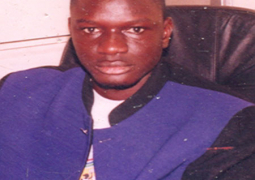Similarly, Islam is a practical religion and it does not indulge in empty and futile theorising. Islam teaches that 'Faith' is not a mere profession of beliefs. Rather, it is the very mainspring of life.
In other words, for Islam religion is something to be lived with mere and not object of mere lip services. (Khurshid Ahmad, ibid.) All this cannot be truly achieved in the absence of knowledge and proper understanding of the revelation. Indeed, the basic qualifications for leadership in Islam are, among other things, knowledge and physical strength. The Prophet of Islam is reported to have said, "he who leaves his home in search of knowledge walks in the path of God". "To seek knowledge is obligatory for every Muslim" and "acquire knowledge, because he who acquires it in the way of the Lord performs an act of piety, he who disseminates it bestows alms and he who imparts it to others performs an act of devotion to Allah". (Khurshid Ahmad, ibid.) Thus, rational thinking and observation, Practicalism and pragmatism, knowledge seeking, acquisition and dissemination call for an attitude of continuous struggle, sacrifice, perseverance and patience on the part of every good Muslim.
1. Comprehensiveness
Islam is not a religion in the common, distorted meaning of the word, which confines the scope of the meaning of religion to the private life of man. Rather, Islam is a comprehensive way of life catering to all fields of human existence. Thus, Islam provides guidance for all walks of life whether individual and social, material and moral, economic and political, legal and cultural, national and international.
Hence the arguments by Muslim scholars and religious leaders that what caused the decline of Muslims and the Islamic world in the modern age is the retreat of religion into the realm of private life. Muslims are enjoined by the Quran to enter the fold of Islam without any reservation and to follow God's guidance in all fields of life. (Khurshid Ahmad, op.cit: 13). This probably is the highest level of commitment and observance of Islam and its teachings and to reach there requires a lot of efforts in the form of sacrifice, dedication, painstaking and perseverance.
2. Universality, Humanism and Anti-Racism
The message of Islam is for the entire human race. As Quran explains God, in Islam is the God of the World (1:1) and the Prophet (SAW) is the messenger for the whole of humanity. The Quran says: "O people, I am the messenger of God to you all (7:158) and we have not sent thee but as a (source of) mercy for all the nations (21:107). Thus Islam is for the whole of humanity regardless of any differences. Islam addresses itself to the conscience of humanity and it therefore disregards all false barriers of race, status, wealth, colour, clan and blood. These barriers have always existed and do exist even today in the so-called enlighten age. So to move all these impediments and barriers and accept the idea of the whole humanity being one family of God who are equal in all respects as proclaimed by Islam would require a lot of sacrifices, compromises and understanding.
3. Finally the remaining basic characteristics and principles of Islam as an ideology or a way of life the observance and maintenance of which cannot be fully and truly achieved without huge sacrifices over prestige, dignity, social status and material benefits include, Unity of matter and Spirit, balance between the Individual and Society, Permanent and Change and complete record of teaching preserved in their original form and without alteration of any kind. (Khurshid Ahmad, op.cit: pp. 10-20).
i) Conclusion:
This Paper argues that sacrifice and reconciliation are fundamental values and basic tenets of Islam as a civilisation, a religion, or a system of belief and a comprehensive way of life. They are conceptually embodied in all concepts, doctrines, principles and teachings of Islam and must therefore be practically demonstrated in the application of such concepts, doctrines, principles and teachings. Sacrifice and reconciliation are the bedrock of Islam as 'din'; they lie at the root of the origins of Islam as a religion (Usulu-din) and therefore embedded within all the devotional, obligatory, charitable and all other activities of Muslims as required of them by Islam in their lifetime. Muslims are sometimes duty bound to sacrifice everything for the sake of Islam, for themselves, for parents and families, for the neighbours including those with whom they do not share the same faith. Without true sacrifice and reconciliation, the Islamic 'Ummah' (Nation) will cease to exist as people of a great civilisation that one time served and continue to serve the whole of humanity.
ii) References:
1. Abdalati Hammuda, (1986) "Islam in Focus"
2. Ahmad Khurshid (NDP) "Islam: Basic Principles and Characteristics"
3. Al-Attas Muhammad Naquib, (1993) "Islam and Secularism", Kualalumpur International Institute of Islamic Thought and Civilisation.
4. Alhashimi Muhammad Alie (PhD) "The Major Moral Values upon which Society and Civilisation in Islam are Founded" in Al-Nadwah Al-Alamiyah Lishabab al-Islam (ed.), Al-Islam Wal Hadharah wa dawru-al-Shabab-alMuslim.
5. Al-Israh al-Nabawiyah (1998) A Serial Publication of the Saudi Ministry of Religious Affairs and Endowment
6. Ata Ur-Rahim, (1997) "Jesus - A Prophet of Islam"
7. Mubabaya Umar P. Mamarinta (NDP) "Islam - The Solution to the World's Perplexing Social Problems",
8. Senghore Aboubacar Abdullah (PhD) "Prospects of Arab-African Integration - A Critical Perspective" (2007) Paper presented at an International Conference on 'Arab-African Cultural Integration in
(COURTSEYOF DR A. A SENGHORE)




